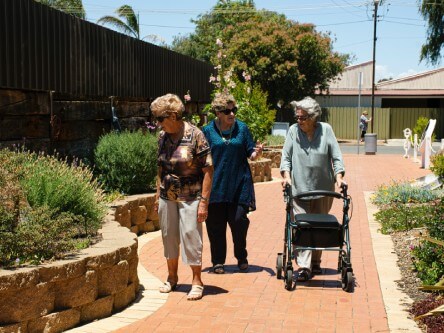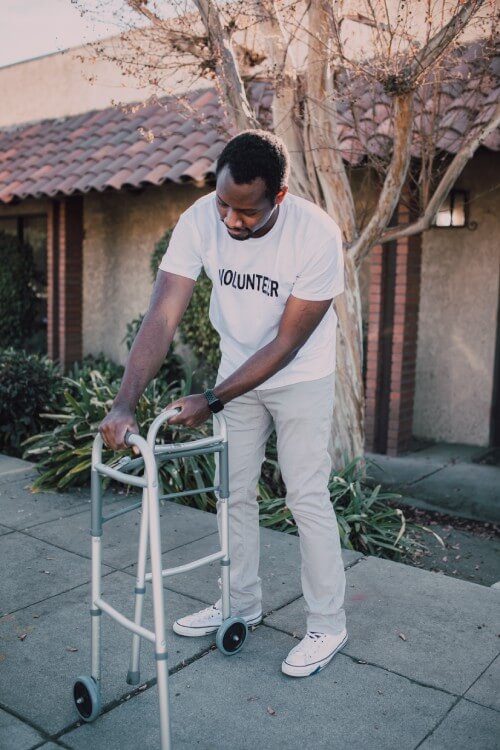Are you a senior or caring for an older loved one? If so, you may have wondered about the fascinating intersection of walkers for seniors and Medicare coverage. It’s a common query, so let’s delve into the nuances of Medicare coverage, discuss the benefits of walkers for seniors, and provide useful insights to help you navigate this aspect of senior healthcare effectively.
Understanding Medicare Coverage
Medicare, a federal health insurance program in the United States, primarily caters to individuals aged 65 and older. It also covers some younger individuals with disabilities. However, it’s important to note that Medicare coverage may vary based on the specific plan and the services or items being considered.
What Does Medicare Cover?
Under Medicare, different parts provide coverage for specific healthcare needs:
- Medicare Part A: This covers inpatient hospital stays, skilled nursing facility care, hospice care, and some home healthcare services.
- Medicare Part B: This covers medical services and supplies necessary to diagnose or treat medical conditions. It includes doctor visits, preventive services, durable medical equipment (DME), and more.
- Medicare Part C: Also known as Medicare Advantage, Part C plans are offered by private insurance companies approved by Medicare. These plans often provide additional coverage beyond Parts A and B, including prescription drugs and wellness programs.
- Medicare Part D: This is the prescription drug coverage offered through private insurance companies approved by Medicare.
Does Medicare Cover Walkers for Seniors?

Now let’s address the main question: Are walkers for seniors covered by Medicare? The answer is yes but with some conditions.
Medicare Part B may cover walkers when they are deemed medically necessary. However, certain criteria must be met to qualify for coverage.
Prescription Requirement
A prescription from a healthcare provider is typically required for Medicare to consider coverage of a walker. This ensures that the walker is recommended based on an individual’s specific medical needs.
Mobility Limitations
Medicare generally covers walkers for seniors who have difficulty walking independently or have mobility limitations that require using a walker for support. The provider’s assessment will be crucial in determining the medical necessity.
Documentation and Supplier Requirements
Medicare requires proper documentation, such as medical records and a supplier’s statement, to support the medical necessity of the walker. Obtaining the walker from a Medicare-approved supplier is important to ensure coverage.
Cost Sharing
While Medicare Part B may cover a portion of the cost, beneficiaries are typically responsible for the 20% coinsurance after the deductible is met. It’s important to review the specific coverage details of your Medicare plan to understand the out-of-pocket costs.
The Benefits of Walkers for Seniors
Walkers can be invaluable for seniors, offering numerous benefits that enhance mobility, independence, and overall well-being. Let’s explore some of the advantages of using walkers:
Improved Stability and Balance
Walkers provide a sturdy support system, helping seniors maintain balance and stability while walking. This reduces the risk of falls and promotes safer mobility.
Increased Independence
With the assistance of walkers, seniors can maintain their independence and perform daily activities with greater ease. Walkers enable them to move around their homes, go shopping, or participate in social activities confidently.
Falls Prevention
Falls are a significant concern for seniors, often leading to severe injuries. Walkers act as a preventive measure by providing support and reducing the likelihood of falls, thus promoting a safer living environment.
Enhanced Confidence
By using walkers, seniors gain confidence in their mobility, which can positively impact their mental well-being. Increased confidence encourages them to stay active and engaged in various social and physical activities.
Muscle Strength and Joint Health
Regular use of walkers helps seniors engage their muscles and joints, promoting strength, flexibility, and overall physical health.
Exploring Alternative Options When Medicare Coverage Criteria Are Not Met
While Medicare may provide coverage for walkers under specific criteria, not everyone may meet those requirements. In such cases, there are alternative options to consider. Here are a few alternatives worth exploring:
Private Insurance
If Medicare does not cover the cost of a walker, check with your private health insurance provider. Some private insurance plans may offer coverage for walkers or other mobility aids. Review your policy or contact your insurance company to determine the coverage available.
Medicaid
If you or your loved one qualifies for Medicaid, a joint federal and state program providing healthcare coverage for low-income individuals, there may be potential coverage for walkers. Medicaid programs vary by state, so contacting your local Medicaid office is important to understand the eligibility requirements and coverage options.
Veteran Benefits
If the individual in question is a veteran, they may be eligible for assistance through the Department of Veterans Affairs (VA). The VA provides various benefits, including coverage for mobility aids like walkers. Contact your local VA office or visit their website to explore available programs and requirements.
Nonprofit Organizations
Some nonprofit organizations or charities may offer assistance with obtaining mobility aids. These organizations can help individuals who may not have access to coverage options through Medicare or private insurance. Research local or national organizations that focus on providing aid to seniors or individuals with mobility needs.
Purchase or Rent Options
If coverage options are limited or unavailable, purchasing or renting a walker independently may be an alternative. Many medical supply stores, pharmacies, and online retailers offer a range of walkers at different price points. Consider consulting with a healthcare professional to ensure you choose a walker that suits your needs and meets safety standards.
Remember, exploring these alternative options and consulting with the appropriate organizations or professionals is crucial to determine eligibility and ensure the best solution for your specific circumstances.
Choosing the Right Walker
When selecting a walker for a senior, it’s crucial to consider their specific needs and preferences. Here are a few key factors to keep in mind:

- Height Adjustability: Opt for a walker with adjustable height settings to ensure proper fit and comfort.
- Maneuverability: Look for walkers with easy-to-use brakes and wheels, allowing seniors to navigate different terrains effortlessly.
- Weight and Portability: Consider the walker’s weight to ensure it can be easily lifted and transported.
- Accessories and Features: Some walkers have additional features like built-in seats, storage pouches, or hand brakes. Assess the individual’s requirements to determine which features would be most beneficial.
- Professional Guidance: Consulting with a healthcare professional or physical therapist can provide valuable insights and recommendations for selecting the right walker.
Conclusion
Walkers for seniors can indeed be covered by Medicare, given that they meet the necessary criteria and are deemed medically necessary.
By understanding Medicare coverage guidelines and selecting the appropriate walker for a senior’s needs, individuals can enjoy the advantages of this valuable tool. Remember to consult with healthcare professionals and Medicare-approved suppliers to ensure compliance with coverage requirements.
Prioritize safety, independence, and overall well-being when considering walkers for seniors covered by Medicare.
